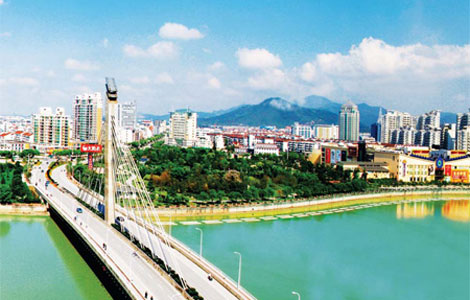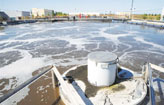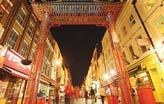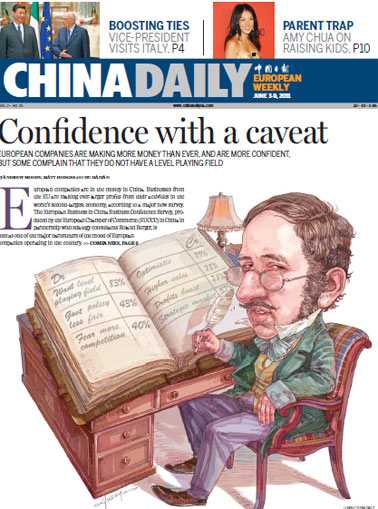'Heavenly' Huzhou
Updated: 2011-03-04 10:47
By Xu Junqian (China Daily European Weekly)
 |
|
Huzhou scored highest against other cities in Zhejiang province in a recent survey on the well-being of inhabitants. Provided to China Daily |
Huzhou is located in one of the most pristine districts of the Yangtze River Delta region.
Residents of the city, which is named after the area's Taihu Lake, say their home has stayed above the crazed pursuit for industrialization and economic gain seen in many neighboring cities including Ningbo, Wenzhou and Suzhou.
"Huzhou people are dedicated to preserving the lifestyle they inherited from ancestors going back 2,300 years ago," says Bo Aijun, a government official. On the streets of Huzhou, "you see more teahouses than clothing shops and fast-food restaurants", he says.
"Our teahouses are crowded from dawn till dusk."
Despite the resistance to change, Huzhou cannot completely shield itself from the economic tidal wave that has overwhelmed the entire region. But the city government has so far succeeded in limiting development to what it described as eco-friendly, to minimize any disruption to the traditional lifestyle jealously guarded by residents.
The most ambitious project so far is the establishment of an economic development park hidden behind the hills and out of sight from the town. The park, built in 1992, is very picky about its tenants. Only companies engaged in environmental protection industries qualify.
So far, its list of 160 tenants includes OMEX, a subcompany of DOW Chemicals that specializes in water cleaning and recycling, and BASF from Germany.
"Since we are living in a city blessed with abundant natural resources, all we need and ought to do is not to disturb it. And it seems to be working pretty well, so far," Bo says.
The government's confidence is well grounded. According to a survey conducted by the Zhejiang statistics bureau about its inhabitants' well-being, Huzhou scores highest against the other 10 cities in the province, with 70.96 percent of its people feeling content living in the city.
The survey consisted of 10 aspects including income, healthcare, environment and education.
Wenzhou, the hotbed of the country's large number of nouveau riche, came in last in the poll, 7.9 percentage points lower than the top scorer.
Another imposing project of the city is its mammoth children's garment manufacturing market, an extended industry of its traditional sericulture and textile industry.
No larger than 140 square kilometers, Zhili, a small village tucked in the east of the city, has gathered more than 12,600 factories specializing in the children's wear industry. Two-thirds of its 300,000 population, come from other places to make a fortune in the huge market, the biggest one in the country.
In 2010, the market achieved an output value of more than 15 billion yuan (1.65 billion euros) and 90 percent of the children's garment exported from China were made here.
The slack development has prevented the city from being heavily polluted, making it the most eco-friendly city among all of the 16 ones in the Yangtze River Delta.
Numbers from its environmental protection bureau show that its air quality remains 91 points high on average perennially, and 48.7 percent of its land has been covered by trees and plants, while in the western area, the coverage reaches as high as 70 percent.
"Economically, Huzhou is no match for cities like Hangzhou, Ningbo and Wenzhou. However, people's well-being is not necessarily connected with money. We want to build the city into a big family, with both agreeable living and working conditions," as Sun Wenyou, head of the Huzhou city government, put it, while talking about the city's 12th Five-Year Plan (2011-2015) in a government meeting recently.
Still, the city's favorable location and beautiful landscapes have attracted far-sighted businessmen with extra cash in pocket.
Zheng Shenghua, a real estate tycoon from Wenzhou who has built several imposing high-rises in the most central location in Shanghai, is one of the first pioneers in this area.
In 2006, he signed a contract with the local government to build a comprehensive water resort that will cover more than 20,000 square meters along southern Taihu Lake, the second-largest lake in China, and provide a series of high-end facilities like a yacht dock, residential villas, shopping malls and hot springs.
The whole project, an investment of more than 6 billion yuan, is expected to be open this summer.
The most magnificent part of the complex is a 100-meter-tall, 116-meter-wide, ring-shaped luxury hotel co-developed with the American Hotel Group, Starwood. The hotel, the first for Starwood in the second-tier cities in China, is expected to be on a par with the Burj Al-Arab Hotel in Dubai, considered the most luxurious hotel in the world.
"Shanghai is overwhelming, Hangzhou is crowded But Huzhou is perfect," Zheng said at a recent press conference.
With some of the countries' most dynamic cities like Wuxi in Jiangsu province and Suzhou opposite Taihu Lake, the resort is expected to face a market of 80 million people, most of which are high-end businessmen and well-off families.
E-paper

Tapping into the future
Foreign companies are investing in China's water industry as many predict a growing profit margin.
Preview of the coming issue
Headhunters ride on growth
Commercial property rides wave
Specials

Cuisine central
London's Chinatown is helping diners appreciate full palate of Chinese food

Tying the knot
Danish couple's high-end macrame export business takes off in the mountains of Yunnan.

Truly a super woman
Li Yuchun first came to prominence in 2005 as the Super Girl winner, and since then has become an international star.
